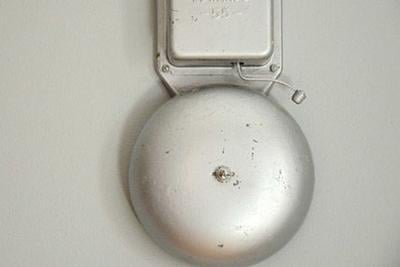Victor Hugo once said, "He who opens a school door, closes a prison."
Wow, is that a radical statement or profound thinking? What did Victor Hugo know? Maybe more than we might imagine. He studied law - though never practiced law - and spent 15 years in exile. With that background, I assume he knew firsthand the benefits of an education and the vagaries of imprisonment.
What does that have to do with us? Almost every parent struggles with the decision of how to educate their children. Some choose Public Schools, some Private, and some Home School. The vast majority in this country choose Public Schools. Why? Largely because of the cost compared to Private Schools. There are other reasons, of course, like convenience, but cost is the single biggest reason based on research compiled by the National Center for Education Statistics (NCES).
There are, however, costs associated with Public Schools beyond the obvious: books, supplies, lunches, outings and more. Alarmingly, the NCES cites student dropouts as a major cost factor, both for the student and to society in general.
You can read national, state, and local statistics, and while the numbers vary, the overwhelming evidence supports the fact that we have an alarming number of student dropouts in our Public School system. This is in stark contrast to the Private Schools, where the dropout rate is nil to none. Before getting to those other "costs" of student dropouts, let’s explore an important question:
Why do students drop out?
In a report from Civic Enterprises, funded by the AT&T foundation, these four reasons are cited for students dropping out of school before completing high school:
Lack of academic preparation.
Boredom or lack of engagement.
Family obligations including parenthood.
The need for paid employment.
Students themselves have added another reason: "too much freedom, not enough rules, and parents unaware of attendance or grades."
By contrast, a brochure published by the Council for American Private Education says that students in a Private School setting benefit from "academic excellence, high achievement, values-based setting, and a safe, secure setting."
From the same brochure, we find this illuminating chart:
Percentage of teachers who perceive certain issues as serious problems in their schools | ||
| Public | Private |
student disrespect for teachers | 17 | 4 |
use of alcohol | 7 | 3 |
drug abuse | 6 | 2 |
student tardiness | 10 | 3 |
student absenteeism | 14 | 3 |
students unprepared to learn | 30 | 5 |
lack of parent involvement | 24 | 3 |
student apathy | 21 | 4 |
What are the estimated costs attributed to the student dropout problem?
Let’s quantify the problem. There are almost 1.5 million students dropping out of high school each year. Some have asserted that the costs of public programs to deal with this problem are expensive. No doubt. But aren’t the costs of inaction far greater?
It's obvious that high school completion is needed to enter college, and most of the job market. If we don’t have a solid, educated workforce, how do we grow our economy? If we aren’t producers and are only consumers, how long can that go on?
If we reduced the current number of dropouts by 750,000 - about half - the graduation rate goes up, of course. High school graduates make more money than a dropout; estimates are as much as 50% more income per year. Some estimates are even higher. If the 50% increase in income came to $20,000 over 50 years in the work force, that would equal $1 million.
The public benefit is staggering. It could mean more income tax, less welfare payments, less subsidized healthcare, and less likelihood of involvement in the criminal justice system. No matter how you run the numbers, the benefits - both to the graduating student and the taxpayers - is in the hundreds of billions of dollars of dollars each year the high school dropouts are decreased by half. In about a decade, it would equate to about $1 trillion.
It seems to me that if the Public School system could decrease its percentage of dropouts to a level equivalent to that of the Private Schools, we would enjoy a real economic recovery. Or, on a more personal level, if more students were enrolled in Private Schools, there would be less dropouts in general.
Did Victor Hugo pen the words "penny-wise and pound-foolish?" I don’t think so. Yet the term fits the current method of dealing with a very real problem in the education system. I think Hugo would agree.




(0) comments
We welcome your comments
Log In
Post a comment as Guest
Keep it Clean. Please avoid obscene, vulgar, lewd, racist or sexually-oriented language.
PLEASE TURN OFF YOUR CAPS LOCK.
Don't Threaten. Threats of harming another person will not be tolerated.
Be Truthful. Don't knowingly lie about anyone or anything.
Be Nice. No racism, sexism or any sort of -ism that is degrading to another person.
Be Proactive. Use the 'Report' link on each comment to let us know of abusive posts.
Share with Us. We'd love to hear eyewitness accounts, the history behind an article.